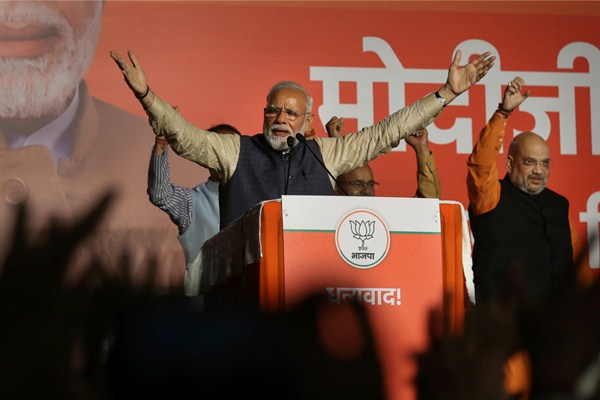The Bharatiya Janata Party owes its dominating win in India’s general election to Prime Minister Narendra Modi, who is being sworn in for the second time today. The right-wing, Hindu nationalist BJP seemingly sought every vote in his name, as if Modi were running in every electoral district in the country. It worked, as many voters made their decision based on who they wanted as their next prime minister, rather than as their representative in parliament. It helped, too, that the opposition remained divided and undecided on whom to project as its candidate for prime minister.
In winning 303 of the 543 seats in the Lok Sabha, the lower house of the Indian parliament, the BJP not only secured a rare majority on its own for the second time in a row, but improved on its performance in the 2014 elections, when it secured 282 seats. Before 2014, it had been 30 years since a single political party had won enough seats in parliament to form its own national government. Modi’s new government has even more power in parliament this time, since the BJP and its allies in the National Democratic Alliance have 351 seats in all.
In the run-up to the 2014 general election, Modi’s promise to voters was economic development. Among other things, he pledged to create 10 million jobs and ensure that farmers would get at least a 50 percent profit over the cost of production. Yet none of these dreams materialized, and the Indian economy has performed poorly under him. According to a leaked government jobs report, India’s unemployment rate stood at a 45-year-high of 6.1 percent in 2017 and 2018, compared to just 2.2 percent in 2011 and 2012, when the United Progressive Alliance, led by the Indian National Congress, was in power. Official figures show that India’s agricultural growth rate fell from 4.2 percent from 2009 to 2014 to just 2.5 percent over the past five years. Rural distress was intense, and the Modi government’s demonetization of high-value currency, as well as its chaotic implementation of a uniform sales tax, brought immense hardship to ordinary Indians.

